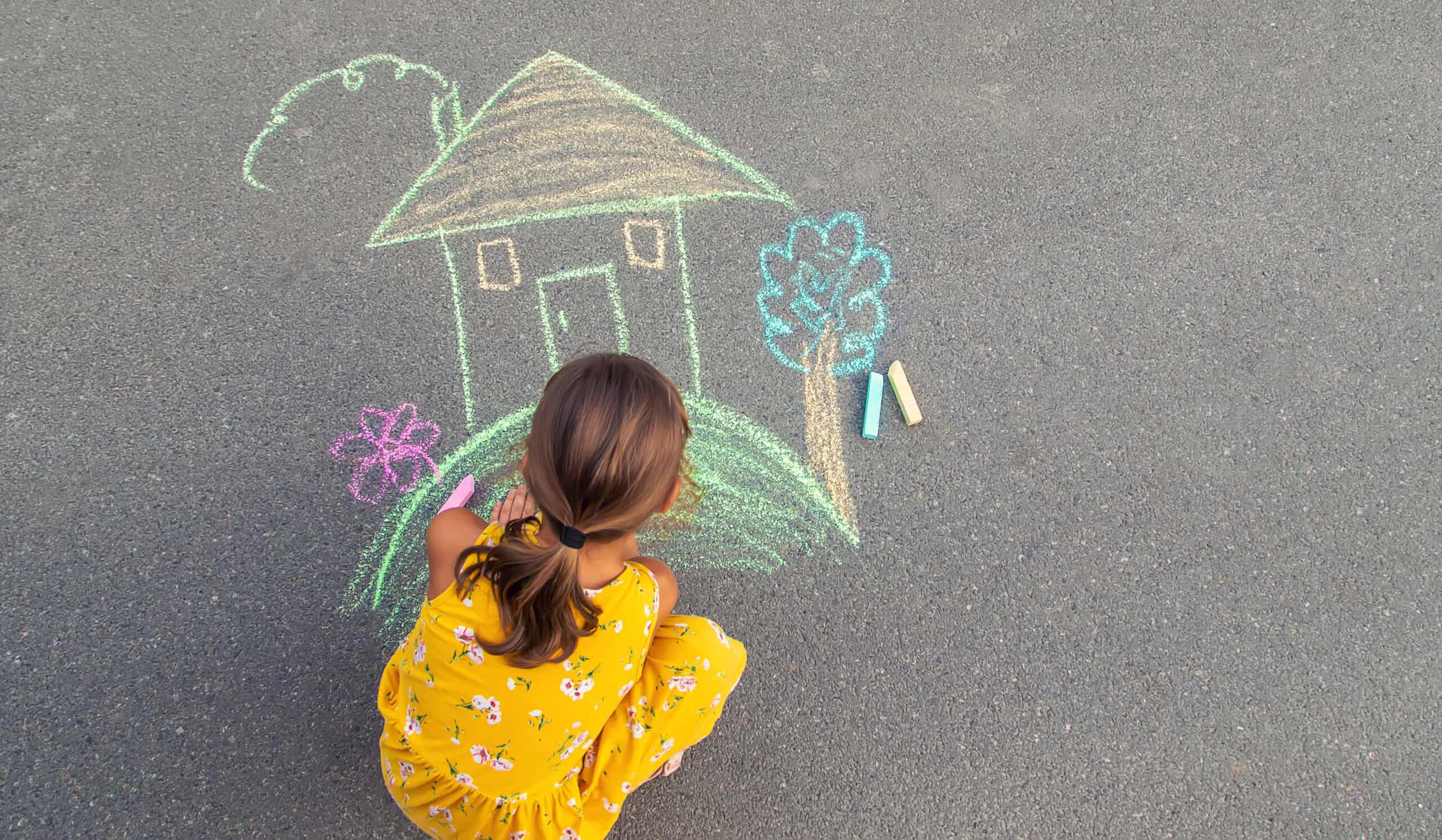Daydreaming, doodling, disrupting, and other distractions are common for children of all ages. Still, it’s natural for parents to worry that difficulty focusing may negatively impact a child’s learning, retention, and academic achievement.
If you’re concerned about your child’s ability to focus, remember that this is a normal area of difficulty for young children. At the same time, you can help your child take steps toward improvement. Here are some great tools and strategies to help your child master the art of concentration!
Why Do Kids Struggle with Concentration?
Young children have much shorter attention spans than adults. Paying attention is an executive functioning skill, part of a set of mental skills that continue developing into the mid-20s. Children and teens develop their executive functioning skills at varying rates, generally with no cause for concern.
Additionally, children are naturally curious and have high energy levels. They want to explore and have fun. When this isn’t the case, children easily grow bored and shift their attention elsewhere. Adults, meanwhile, have the ability to power through a task even when it’s unenjoyable.
So, difficulty paying attention is normal for children. But if your child seems to struggle more than their peers, you may want to consider underlying causes like:
· Lack of quality sleep
· A poor routine
· Too much screen time, especially before bed
· Need for a more nutritious diet
· Anxiety associated with learning and/or school
· Mismatched learning style or lack of challenge
· Worries over problems or recent changes at home
Start by trying the concentration-boosting tips below. Then, consider and address any potential underlying causes. If your child still has significant problems with a focus that impacts their learning, you may want to consult a healthcare professional to look into possible learning difficulties. If a learning difficulty is diagnosed, you’ll find there are plenty of supports to help your child succeed in the classroom.
Seven Tips to Help Your Child Focus
In many cases, children can improve their ability to focus on a task with a few simple adjustments. Try the strategies below to enhance your child’s concentration.
1. Break Tasks Into Smaller Pieces
Sometimes, a task with many steps feels too overwhelming. Children may not know where to begin, or they may feel so intimidated by the task that they give up. It’s extremely helpful to break big tasks into smaller pieces.
Give children only one or two steps to complete at a time. Not only does this make the task easier to tackle, but it will also build your child’s confidence as they successfully complete each piece.
Of course, you can’t control how tasks are delivered in your child’s classroom. Practice breaking tasks into smaller pieces at home, and encourage your child to apply the strategy at school too. You can teach them simple tricks, like using a sheet of paper to cover every question on an assignment except the first one, then sliding the paper down as they progress through the task.
2. Make Lists
Think about the tools that help you stay focused on your daily tasks. Perhaps you use a calendar, sticky notes, or a checklist. These strategies are also helpful to children who struggle with attention.
Experiment with different organisational tools to determine what works for your child. Younger children can use visual checklists, with images of the tasks they need to complete.
3. Organise a Dedicated Workspace
Consistently completing schoolwork or homework in the same space creates structure, which feels predictable and safe for children. At home, help your child choose a dedicated workspace. Ensure that the space is well-lit, clean, and stocked with the materials your child needs. This prevents your child’s focus from being interrupted by getting up to search for a pencil, paper, or other supplies.
Remove clutter and minimize visual distractions. Make the space comfortable and calming with a supportive chair, cheerful colours, and even a mood-boosting air freshener. Lemon, jasmine, and lavender are productivity and mood enhancers, cinnamon is said to sharpen the mind, and citrus boosts energy.
Again, you can’t control your child’s environment at school. But you can encourage them to keep their desk clean and organized. And as your child has positive and successful learning experiences at home, they’ll develop confidence and good habits that travel with them to school.
4. Create Manageable Routines
Routines are another way to incorporate structure and safety, which ultimately enhances your child’s ability to accomplish tasks.
Create a routine around important times of the day such as waking up and getting ready for school, eating meals, doing homework, and going to sleep. Include physical activity, time for connecting as a family, and limited interactions with screens. It’s important that you’re able to be consistent with your routine, so create something that’s manageable and practical for your family.
Stabilising and healthy routines at home provide a firm foundation for optimal learning anywhere. Additionally, routines encourage other executive functioning skills like prioritisation and time management.
5. Take Brain Breaks
Sometimes, children who have trouble focusing simply need more breaks. Learn and study in smaller, more productive blocks broken up by rejuvenating brain breaks.
Brain breaks only need to last for a few minutes, and they should help restore your child’s energy and focus. At school, brain breaks are likely incorporated into your child’s day through lunch breaks, physical education, or activities like art class. At home, you can take brain breaks when your child’s focus wanders during homework, chores, or other tasks.
Ideas for brain breaks include:
· Yoga stretches
· Jumping or running in place
· Making silly faces
· Telling jokes
· Dancing to a favourite song
· Drawing or colouring in
· Tossing a ball
· Mindfulness exercises, such as deep breathing and visualisation
Taking a brain break is like pressing a reset button. Your child will return to their task feeling re-energised and ready to focus. Just like breaks at work – they actually enhance productivity. Brain breaks are a time saver and not a time-waster.
6. Play Memory Games
Memory games are a fun way to work on improving your child’s concentration. Memory matching cards and games like Concentration can help. Even simple activities that require focus, like Simon Says and Red-Light-Green-Light, can teach children to pay attention.
Similarly, jigsaw puzzles, tongue twisters, and picture puzzles (e.g., “Spot three differences between these two images”) help children fine-tune their ability to concentrate for longer periods of time.
7. Build Your Child’s Confidence
You may wonder what confidence has to do with concentration. In some cases, children don’t focus or make an effort in school because they don’t believe in their abilities.
Some of the strategies above will help boost your child’s confidence by setting them up for successful, positive learning experiences. Likewise, find your child’s talents and areas of excellence, then create opportunities for success. Celebrate and encourage them for effort, perseverance, and creativity too – not just successful outcomes.
Other ways to increase your child’s confidence include:
· Modelling and practicing positive self-talk
· Joining their play and letting them lead
· Asking for their advice or opinion
· Giving them age-appropriate ways to contribute around the house
· Offering unconditional love and acceptance
· Teaching social skills, including role playing social scenarios that your child finds difficult or uncomfortable
Taking steps to increase your child’s self-esteem and social skills can help them feel more comfortable at school, which in turn can motivate them to focus and learn. It’s also helpful to work with your child on managing their feelings, as unregulated emotions can also contribute to trouble concentration in the classroom.
Incorporate these simple strategies into your child’s daily life, and you’re likely to see their powers of concentration soar.
By: Alexandra Eidens, Founder, Big Life Journal





